Dhaka's Brahma Samaj
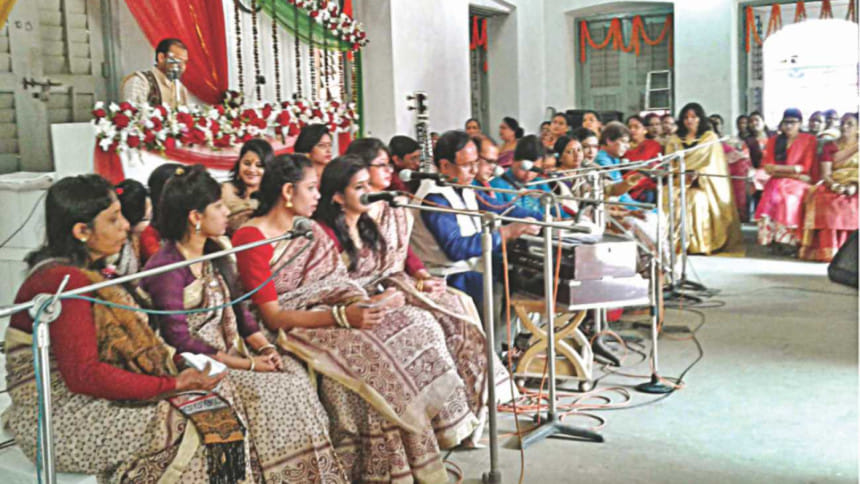
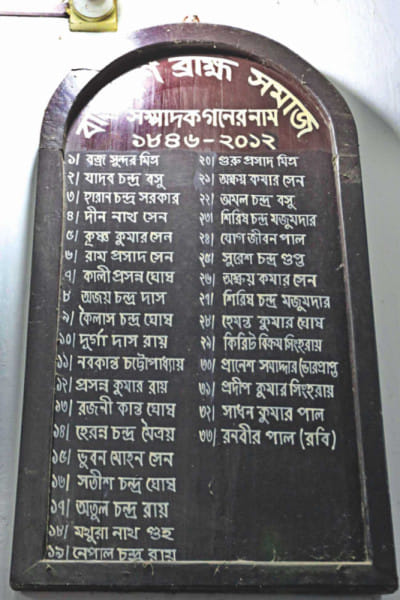
If you are a regular reader of Bengali literature, you must be familiar with the term 'Brahma Samaj'. But if not, don't mix up the term 'Brahma' and 'Brahman'—they are very different concepts. It was primarily an approach of Raja Ram Mohan Roy, to create a separate society as a social reformation to eradicate the excessive religious rituals, prejudices, superstitions and cast discriminations of the Hindus of India. Finally, on 20th August, 1828 (Bengali-6 Bhadra, 1750), 'Brahmo Samaj' was established in Kolkata, with a mindset to worship the incorporeal God.
When Ram Mohan died in England, on 27th September, 1833, people started thinking that Brahma Samaj would discontinue very soon. They were later proven wrong. Rather, with the effort of Pandit Ramchandra Vidyabagish and afterwards Maharshi Debendranath Tagore, Brahma Samaj went through its ultimate development in India.
However, if we want to look back at the history of Dhaka's Brahma Samaj, the name of Braja Sundar Mitra is often mentioned. According to the book 'Purba Bangalar Brahmosamajer Itibritto' by Sree Banka Bihari Kar, Braja Sundar Mitra formed the Dhaka's Brahma society in 1846, in a meeting that took place in his house in Shakhari Bazar. Later on, he granted his own house in Armanitola to the Brahmo devotees in 1857.
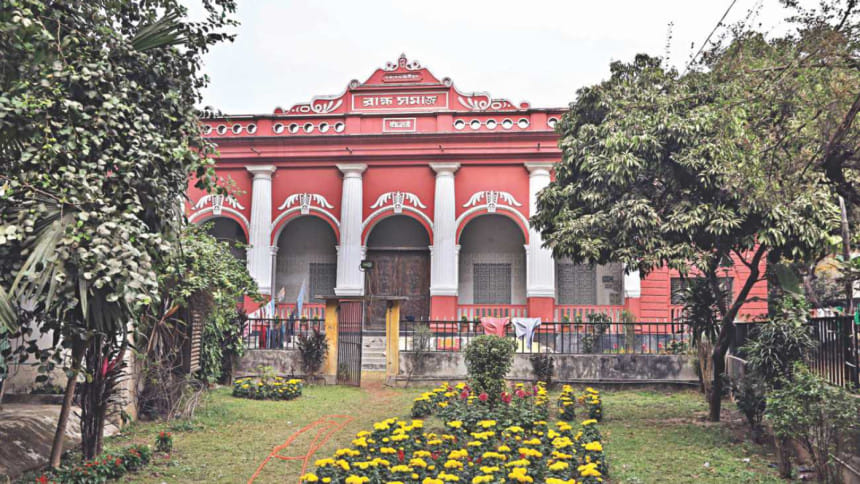
As the ideas of the Brahma samaj spread amongst the powerful and the educated in the country, moving beyond Dhaka in 1869, Dhaka's Brahmo Samaj academy got its own house. Today, the structure is still located at Loyal Street, Patuatuli in Old Dhaka, adjacent to Dhaka Collegiate School and Jagannath University. A clear nameplate reading 'Brahma Samaj' would be sighted on top of the two-storey red and white coloured building that was built in British architectural style. In front of the structure, one would find a green ambience that creates a tranquil environment for its devotees.
Inside the building, you would just find an Om sign, a Hindu sacred sign that is considered the greatest of all mantras. "Other than that, Brahma Samaj does not allow keeping any kind of symbols, shapes or images," says Ranabir Paul (Rabi), the general secretary of Bangladesh Brahma Samaj (BBS). There is a dais in the hall room, on which the Acharya (spiritual leader) talks about the Brahma morals and dogma to the devotees. Sitting on the benches, the Brahma artists sing different religious songs from the middle.
The library situated at the right side of the building, having a large collection of Brahma related books is known as the 'Raja Ram Mohan Roy Reading Room'. This library, once frequented by Rabindranath Tagore, is still there, where many eminent personalities, for example-- Dr. Muhammad Shahidullah (writer), Shamsur Rahman (poet), Kazi Motaher Hossain (author) would come to study. Even today, if anyone wants to research on the Brahma Samaj, or is simply curious to know about their rituals are warmly welcomed there.
Depending on the origin, Brahmo Samaj has two classifications. Stepping out of Hinduism or any other religion, people who converted to the Brahma religion are regarded as the original Brahmas. On the other hand, informally Brahmas are those who don't agree with the religious conversion, but want to adopt the Brahma rituals or beliefs.
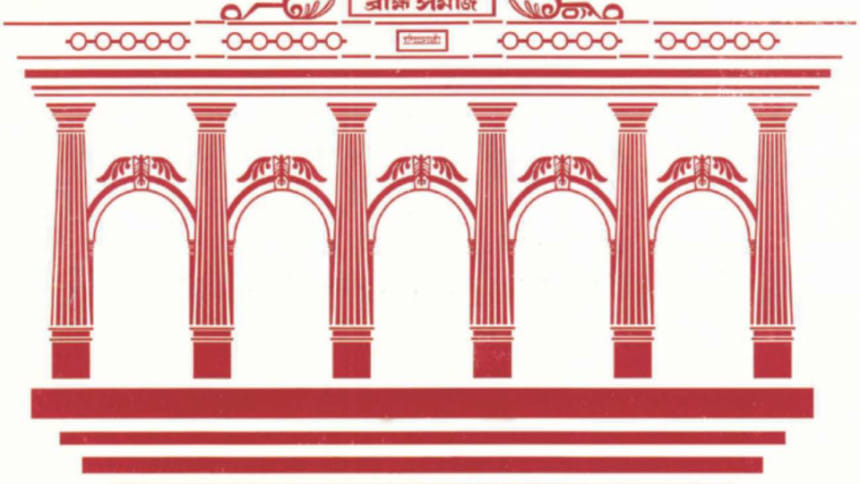
Though, earlier Brahmo Samaj would exist in most of the nearby districts of Dhaka, over the years the prior motion has been slowed down to a great extent. Today, the number of original Brahmas has decreased greatly, while compared to that; the informal Brahma's number is quite satisfactory.
"Last week, when we celebrated a three-day-long 187th Maghotsav on the anniversary of world-wide Brahma Samaj, we found it really pleasing that a large number of people still pay great attention to the Brahma society," says Deepak Paul, who has been serving as the Acharya and also a member of BBS.
The Brahmas are always famous for their different philanthropist activities --distributing blankets to the poor in winters, giving stipends to the poor students or donating the other Brahma societies of the country. But it is surprising that the committee never takes any kind of allowance from the Governments.
Usually on Sundays, devotees from different areas gather at the Dhaka's Brahma Samaj premises. Apart from this, every year, Dhaka's Brahma Samaj celebrates the birth and death anniversary of Raja Ram Mohan Roy, Pahela Baisakh, 6 Bhadra and Maghotsav (on the 11th Day of the Bengali month-Magh).
Dhaka's Brahma Samaj still urges the devotees to come, learn, and get the contiguity of incorporeal god. As always, it still welcomes creative and progressive people to come be a member of their society.

 For all latest news, follow The Daily Star's Google News channel.
For all latest news, follow The Daily Star's Google News channel. 


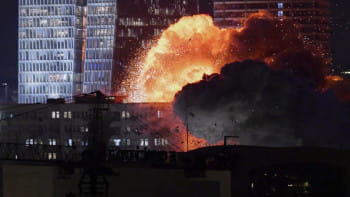
Comments